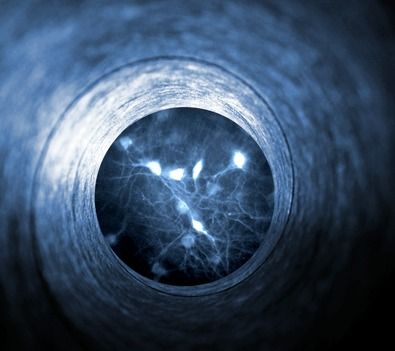The ancient impulse to procreate is necessary for survival and must be hardwired into our brains. Now scientists from the University of North Carolina School of Medicine have discovered an important clue about the neurons involved in that wiring.
Using advanced deep brain imaging techniques and optogenetics, the UNC scientists found that a small cluster of sex-hormone-sensitive neurons in the mouse hypothalamus are specialized for inducing mice to “notice” the opposite sex and trigger attraction.
This study, led by Garret D. Stuber, PhD, associate professor of psychiatry and cell biology & physiology, and Jenna A. McHenry, PhD, a postdoctoral research associate in Stuber’s lab, identified a hormone-sensitive circuit in the brain that controls social motivation in female mice.
